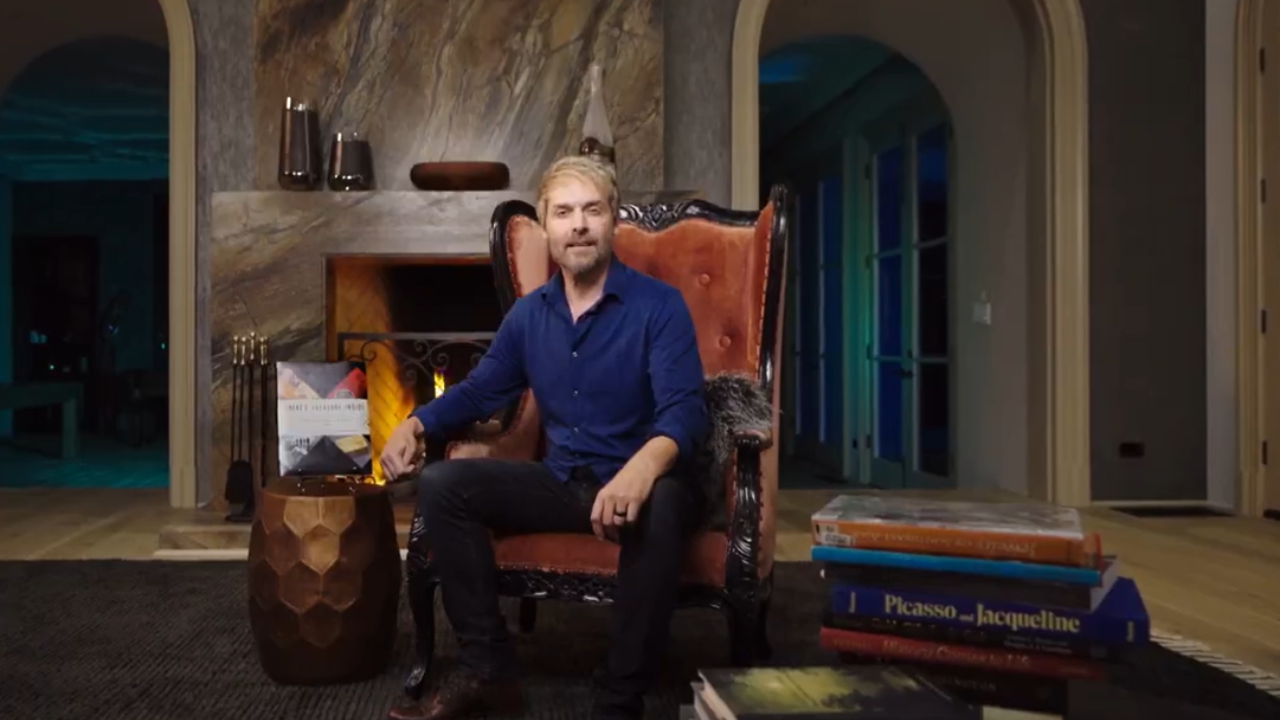ARTICLE AD BOX

The world will have just over two months to prepare for Donald Trump’s return to the White House, and whatever new foreign policy comes with it. His first presidential term—defined by trade wars, isolationism, and a deep skepticism towards the E.U. and NATO—may seem to offer a preview of what might come in the second. But those close to the President-elect say that the only thing the world should count on is his trademark volatility.
[time-brightcove not-tgx=”true”]“Predictability is a terrible thing,” Richard Grenell, Trump’s former intelligence director who is tipped for an important role in the coming administration, recently told the Financial Times. “Of course the other side [America’s enemies] wants predictability. Trump is not predictable and we Americans like it.”
Still, experts detect indications of what the next Trump presidency might portend for Gaza, Ukraine, Europe, and beyond.
In the Middle East, A New Uncertainty
Of all the foreign policy issues that have featured in this U.S. election cycle, perhaps the most urgent is Israel’s ongoing wars against Iran-backed militant groups in Gaza and Lebanon, where more than 43,000 Palestinians and 3,000 Lebanese people have been killed under Israeli bombardment. Trump told TIME in April that had he remained in office in 2020, the wars “would have never happened.” Throughout the 2024 campaign, he pledged to bring an end to the violence and restore peace to the region, albeit without offering any specifics. He has simultaneously suggested that Israel should be allowed to “finish the job” in Gaza while also reportedly urging Netanyahu’s government to wrap up the war by the time he returns to the White House.
What that signals—a push for a ceasefire, or the tacit endorsement of Israel to go even further forward with its offensives—is open to interpretation, but observers are guided by Trump’s markedly deferential support for Israel in his first term. In relocating the U.S. embassy from Tel Aviv to Jerusalem and recognizing the Israeli-occupied Golan Heights as part of Israel, he took steps no previous President, Republican or Democrat, had even approached.
What likely matters most to Trump is that the wars are “out of the news,” says Matt Duss, the executive vice president of the Center for International Policy and a former chief foreign policy advisor to Sen. Bernie Sanders, “because anything that detracts from the spotlight being on Trump is what he doesn’t like.”
“Ultimately, as we saw in his first term, he’s just going to outsource a lot of this to his advisors, people like [David] Friedman and [Jared] Kushner, and we all know what their views are,” Duss adds, referring to Trump’s former ambassador to Israel and his son-in-law and former adviser, both of whom have amplified calls for the expulsion of Palestinians from Gaza and the annexation of the Israeli-occupied West Bank.

Within Israel, expectations for Trump—who was widely favored among Israelis—are mixed. “On the extreme-right, there is the notion that with Trump, Israel will have a free hand in Gaza, Lebanon and the West Bank, and even Iran had better watch out,” says Nimrod Novik, a fellow at the Israel Policy Forum and a former senior advisor to ex-Israeli Prime Minister Shimon Peres. “On the center-left, there is the expectation that unlike [President Joe] Biden, Trump will not let Netanyahu push him around, which might present Netanyahu with the first serious dilemma of choosing between standing up to his messianic coalition partners or to an unpredictable Trump.”
When it comes to Iran, Trump may be less willing to constrain Israel. His first term was defined by a maximum-pressure campaign on the Islamic Republic. Trump not only pulled out of the agreement that had sidelined their nuclear program, and imposed new sanctions; he also ordered the assassination of a hugely popular figure in Iran, General Qasem Soleimani. Iran has vowed, and apparently plotted, to avenge that death by assassinating Trump. But the wealthy Sunni kingdoms of the Gulf, which also regard Iran as a danger, may not be spoiling for a fight.
“Trump and his national security team may struggle to find the same level of support in the region that they had four years ago,” writes Jonathan Panikoff, the director of the Atlantic Council’s Scowcroft Middle East Security Initiative and a former deputy national intelligence officer for the Near East at the U.S. National Intelligence Council. He notes that most wealthy Gulf state allies that may have previously cheered such efforts are now—–with the cycle of direct attacks between Israel and Iran threatening to escalate into a regional conflagration—–seeking to calm tensions with Tehran.
The signature foreign policy achievement of Trump’s first term may have been the Abraham Accords, a set of treaties normalizing relations between Israel and some of its Arab neighbors. The war in Gaza imperils efforts to expand them— – most notably to Saudi Arabia, which was thought to be on the brink of reaching a normalization deal with Israel before the Hamas Oct. 7 attack that killed 1,200 people in the country. The Saudis have since affirmed that no such deal would be reached without a viable path to a Palestinian state.
At the start of his first term, Trump regarded that as an opportunity to demonstrate his negotiating skills, calling it “the ultimate deal.” But he appears to have cooled on the idea of a Palestinian state, which is opposed by advisers such as Friedman. “There was a time when I thought two states could work,” Trump told TIME in April. “Now I think two states is going to be very, very tough.”
In Ukraine, the Putin Question
Just as Trump pledged to resolve the wars in the Middle East, he has also stated that he would bring about an end to the more than two years of fighting between Russia and Ukraine—a feat that he says could be achieved in as little as a day. Both he and his Vice President-elect, Sen. JD Vance of Ohio, have expressed antipathy towards further U.S. military aid to Ukraine and suggested that Kyiv could be pressured into a truce with Moscow, perhaps at the cost of some of Ukraine’s territory.
While Ukraine has harbored fears about what a second Trump term would mean, its government has also voiced some optimism about changes that a Trump administration might bring—specifically, a shift away from the relatively cautious approach of the Biden administration, which often rebuffed Kyiv’s requests for more air defense and long-range missiles out of fear of escalating the conflict. Among the optimistic is former British Prime Minister Boris Johnson, who in a congratulatory post attributed Trump’s victory to his record of “taking strong and decisive action,” adding: “I have no doubt that is what he is now going to do at home and abroad, whether in the Middle East or in Ukraine.” Trump’s choices for senior administration positions may offer clarity.
“I appreciate President Trump’s commitment to the ‘peace through strength’ approach in global affairs,” Ukrainian President Volodymyr Zelenskyy said in a congratulatory X post on Wednesday. “This is exactly the principle that can practically bring just peace in Ukraine closer.”
Read More: Ukraine’s Plan to Survive Trump
Trump has long touted his “very good relationship” with Russian President Vladimir Putin, with whom he has reportedly spoken with as many as seven times since leaving the White House. But the Kremlin greeted his victory coolly, noting that the U.S. remains “an unfriendly country that is both directly and indirectly involved in the war against our state.”
For NATO, More Pressure to Spend
Among the biggest foreign policy bugbears of the first Trump term was NATO and whether its members were contributing their fair share to the military alliance. During the campaign, Trump made it clear that—even though Russia’s invasion of Ukraine had revived the alliance—he hasn’t let the issue go, saying that, despite the stated obligations of the treaty, he would not commit to defending countries who weren’t meeting the commitment to spending at least 2% of their GDP on defense. While Vance recently reaffirmed that a Trump administration would “honor our NATO commitments,” he stressed that NATO “is not just a welfare client. It should be a real alliance.”
Just 23, or roughly two-thirds, of the alliance’s members are expected to meet the 2% threshold this year. But in a statement congratulating Trump, new NATO chief Mark Rutte said that defense spending is “on an onward trajectory across the Alliance,” perhaps signaling that targets could yet be set even higher in future, likely to 2.5% or even 3%. Some members, among them frontline states Poland, Latvia, and Estonia, are already exceeding them.
In any event, Trump’s return to the White House did nothing to suppress the debate among European leaders over the continent’s strategic autonomy and the extent of its reliance on an increasingly unreliable Washington. “Some claim that the future of Europe depends on the American elections, while it depends first and foremost on us,” Polish Prime Minister Donald Tusk said in the lead-up to the U.S. vote. “Whatever the outcome, the era of geopolitical outsourcing is over.”
For China, Tariffs, and Possibly a Trade War
Trump campaigned on a vow to impose tariffs as high as 60% on all Chinese imports, in what is expected to ignite a trade war with Beijing and likely prompt retaliation against U.S. businesses. (He has also floated a universal tariff of 10% to 20% on all imports.) While proponents of this plan argue that it will encourage American manufacturing, some analysts warn because tariffs will be passed on to consumers, it could cost U.S. households as much as $2,600 a year.
Observers don’t necessarily expect the president-elect to seek to confront China on other fraught issues, such as the U.S.’s continued support for Taiwan. In line with his traditionally transactional approach to politics, Trump has previously registered skepticism about the benefits of supporting Taiwan, suggesting that the self-governed island ought to pay the U.S. for protection.
.png)
 2 weeks ago
1
2 weeks ago
1








 English (US)
English (US)